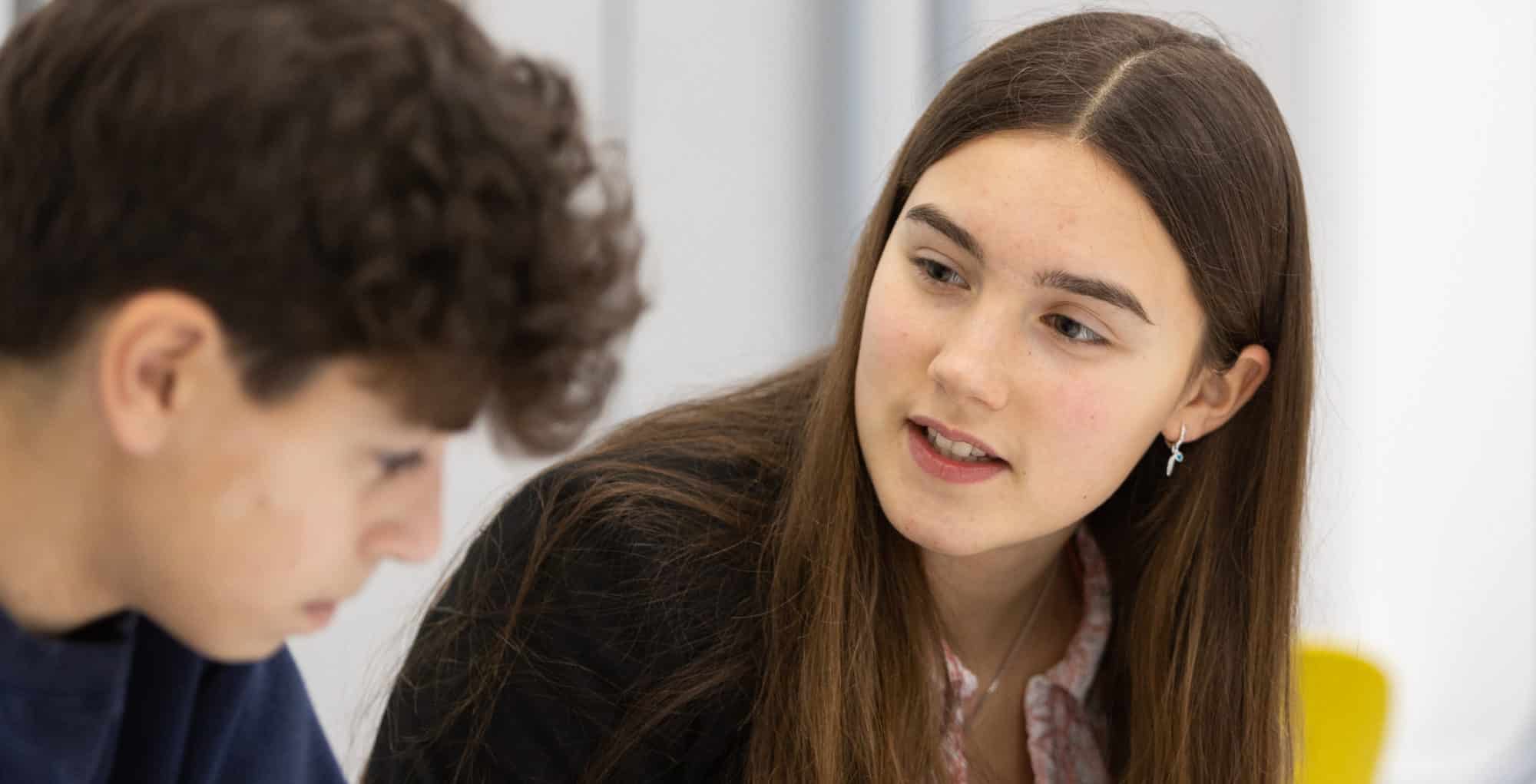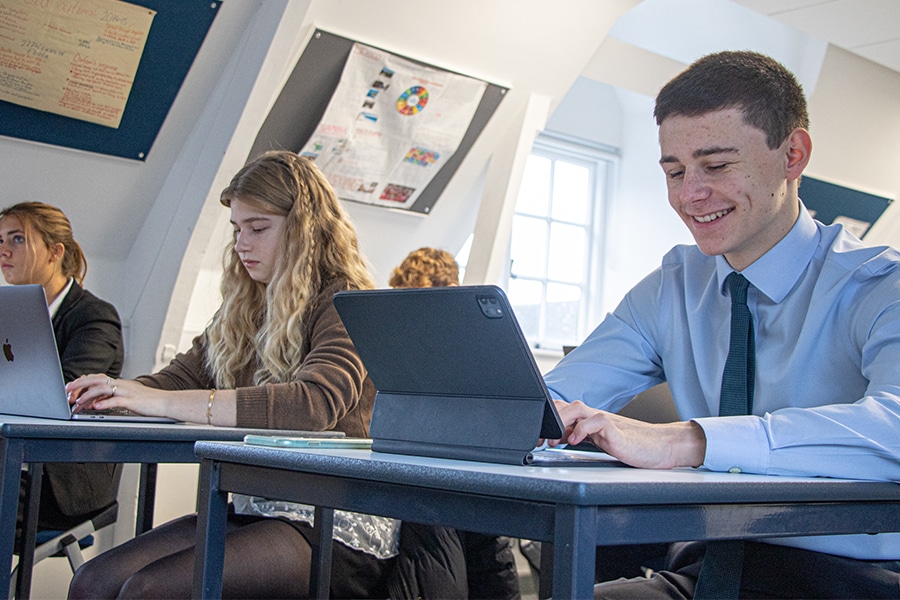
The UK is going through a challenging period contending with trade, budget, investment and skills deficits. There is only one way out: a rapid improvement in the productivity of our workers. That means education reform.
Consider the recently published report by the Times Education Commission, which consulted widely for over a year:
At a time when an ever more interconnected globe requires cross-fertilisation across disciplines, pupils are forced to specialise far too early… An analysis by the Education Policy Institute for the Royal Society found that the proportion of A Level pupils covering at least three of the main subject groups — humanities, sciences, maths, languages and vocational — has halved since 2010. The former Conservative Cabinet minister Lord Willetts described the narrowing down to three A Levels at 16 as “barbaric” and suggested: “It creates a particularly acute conflict between the two cultures of arts and sciences, far worse than in any other western country.”
The commission proposes the introduction of a British Baccalaureate at 18, an equally rigorous but broader qualification than A Levels with academic and vocational options under the same umbrella. It would be based on the tried and tested International Baccalaureate (IB), which is widely respected by employers and universities, but would be customised for the UK. Pupils studying for the academic Diploma Programme (DP) would take six subjects — three major, three minor — covering both humanities and sciences as well as units on critical thinking, communication and creativity.
(Times Education Commission, 2022).
EDUCATION IS ABOUT WHAT YOU WILL NEED IN THE FUTURE, NOT WHAT YOU LIKE IN THE PRESENT.

Education is about what you will need in the future, not what you like in the present. Education is about equipping pupils to be adventurous and make a difference in the world.
For those who are lucky enough to have the option, the International Baccalaureate has provided a tried and tested alternative to A Levels since 1968, staying true to its mission statement of developing inquiring, knowledgeable and caring young people who help to create a better and more peaceful world through intercultural understanding and respect.
To the ambitious pupil, it might seem a no-brainer but young people remain nervous about making the leap from the traditional A Levels. The temptation to abandon certain subjects is strong, especially following the GCSE experience. Peer pressure is powerful and cultural expectations of a narrow curriculum are embedded. It is hard for any 16 year old to take a long-term view, to look beyond UK borders, to think of skills not scores. Long term considerations are too complicated, too uncertain and too troubling.
The IB Diploma offers Bradfield pupils a superb opportunity to thrive in a new world as flexible lifelong learners.
So let me help break things down into five simple and compelling arguments to take IB.
IB ALLOWS EVERYONE TO IMPROVE THEIR MATHS
Employers need workers who are numerate, who can think logically to solve problems. Put simply, Maths is far too important to quit at 16. Pupils need to keep Maths going, but on an accessible level. For many, A Level Maths is just too hard, but with four IB Maths options to choose from, pupils can find the right level for them. Quantitative data and statistics are in every sector of industry. You can quit Maths in the Sixth Form, but you cannot quit Maths in life.
IB PUPILS ARE MORE FLEXIBLE
The future of work is less predictable than at any time in human history. Most people do not know what they will do for a career, because many careers of the future don’t yet exist. Employers care less about subject specifics and more about skills, diversity and flexibility. They also care about self-management and ambition. IB pupils can legitimately claim to have embraced challenge, to have balanced competing demands and embraced diverse perspectives across disciplines. They have flexible skills and that means hard currency in an uncertain world.
IB PUPILS DO BETTER AT UNIVERSITY
The demographic projections are sobering – all university admissions departments are expecting exceptional year on year growth in applicants all the way to 2030. Entry requirements are tightening, especially for A Level pupils, who must compete with the glut of inflated pandemic grades, deferred from the last three years. It hasn’t been this competitive in a long time. Meanwhile, we are observing a growth in IB offers that are far more generous than the A Level equivalent. It isn’t difficult to see why – numerous studies have demonstrated that IB undergraduates outperform their A Level contemporaries at university. They are better prepared, have lower drop out rates and a higher incidence of first-class degrees.
IB IS LOWER RISK AT ASSESSMENT
The final IB Diploma score is determined from 15 exam papers and nine pieces of coursework. In comparison, the average A Level pupil has their entire qualification based on just nine exam papers. Can anyone guarantee that all of those papers will go well? IB pupils have their work spread more evenly across the two years and progress through their qualification in a planned, structured way rather than proving their entire worth in high stake, high stress terminal exam papers.
YOU ARE AN IB LEARNER FOR LIFE
Everyone at Bradfield believes in educating our young people for life. But how do we evidence those values for an A Level pupil? Our Education for Life ethos is a response to the absence of these values in A Level specifications which share no common philosophy, themes or interdisciplinary links. It is Bradfield’s attempt to fill the gaps. By contrast, the IB Learner Profile underpins every specification and curriculum review. Subject reforms are designed collaboratively, as part of a coherent Diploma. The Learner Profile is a globally recognised set of values shared by 1.2 million IB alumni. Everyone who leaves Bradfield becomes an Old Bradfieldian and enjoys the privilege of that club. But those who leave with an IB Diploma also join a worldwide network of likeminded people, who can instantly recognise and value what an IB Diploma on your CV really means.
It is a challenging time for the UK, and an uncertain one for today’s pupils. With a bit of ambition and the right support, the IB Diploma offers Bradfield pupils a superb opportunity to overcome and thrive in that new world, as flexible lifelong learners.



